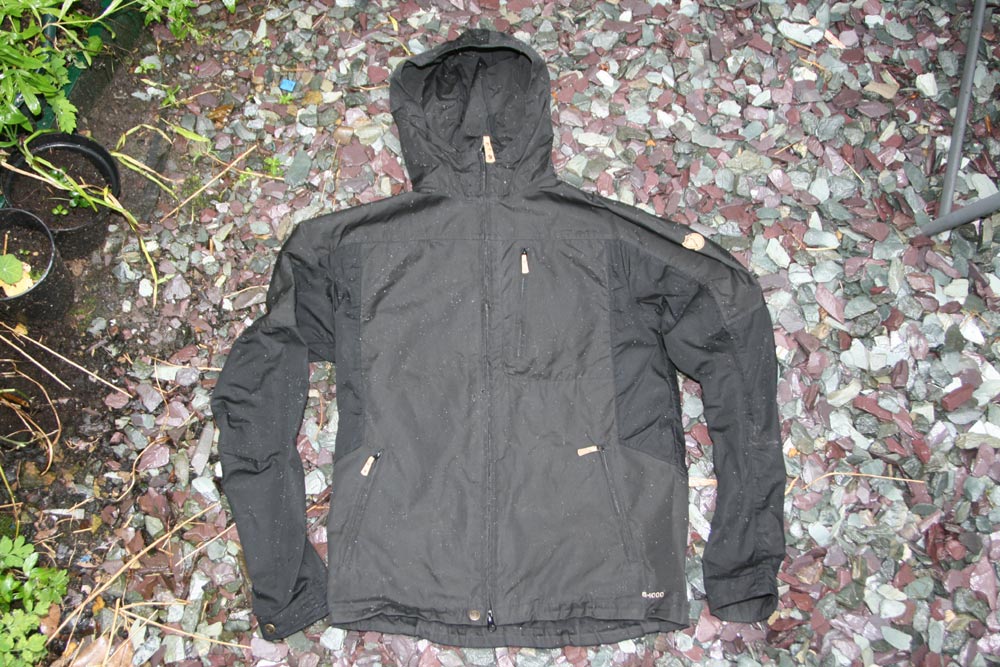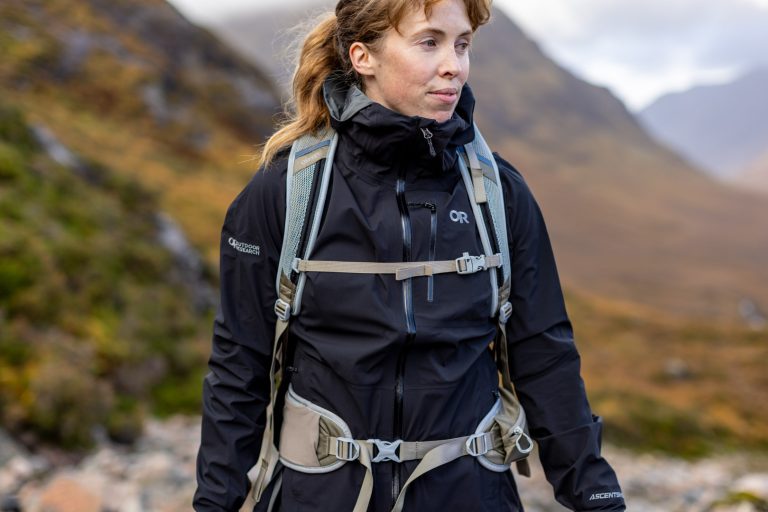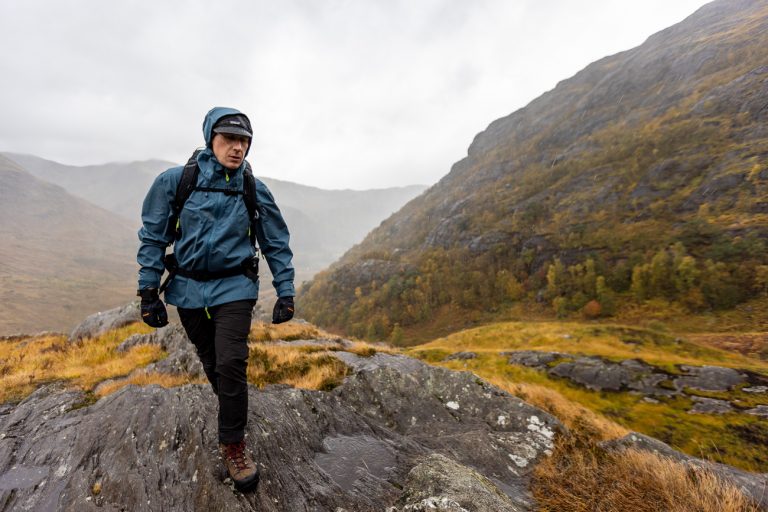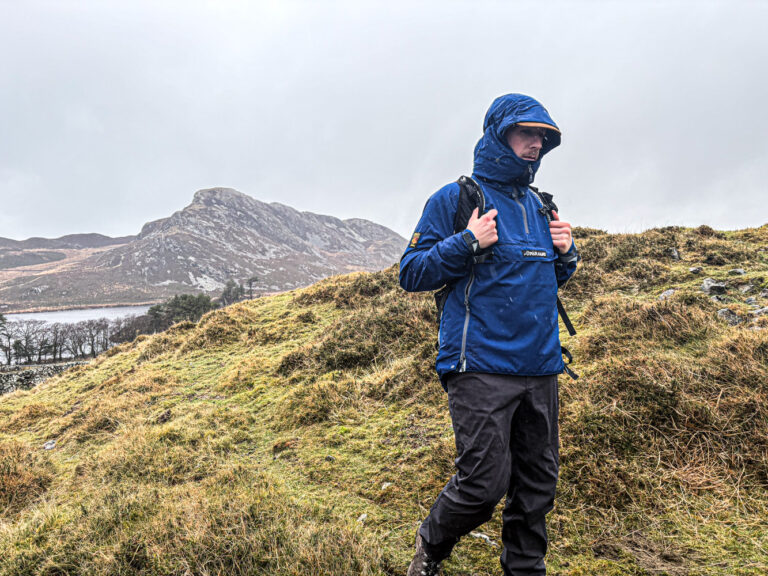It’s always nice to find something a bit different out there in a world of membrane and coated fabrics. Paramo’s Directional Clothing is one alternative solution and Fjällräven’s G1000 fabric, as used in the Sten – yes, we know, sounds like IKEA shelving – Jacket that rocked up just the other day.
In fact the Sten was our second choice, we wanted something a bit more ruffty tuffy outdoorsy like the Sarek Jacket but that was unavailable, so we opted for the more everyday Sten on the basis that it would, at least, give us an idea of how the fabric works even if the jacket design wasn’t quite so serious, as an example, the hood is non adjustable.
Polyester, Cotton And Wax
So what is G1000? Well, it’s a tightly-woven, tough-feeling mix of 65% Polyester and 35% cotton that kind of reminds us of the classic tightly woven cotton Ventile fabrics traditionally used by polar explorers – Ventile works by being so closely woven that it’s pretty much windproof and, by creating a waterproof barrier once the fibres get wet and swell up.
That’s where G1000’s a bit different. It’s treated with something Fjällräven calls ‘Greenland Wax’, which impregnates the fabric and makes it highly water resistant. It seems to work too, in a short, sharp Peak District shower, the jacket beaded nicely and we stayed comfortably dry.
Customise Your Proofing
What’s really neat is that you can choose to add more wax selectively to improve waterproofing if needed. You might, for example, choose to add extra wax to the shoulders and sleeves. Or indeed, all over. You just run a bar of wax over the fabric then melt it into the material at a temperature of 55-60˚C using an iron.
The downside is that increasing the waxing effect, while it improves water repellency, also reduces breathability, so it makes sense to focus on, say, the shoulders and seams to increase water repellency where needed most. We’re going to use the jacket as is initially, then do some additional waxing when necessary.
The jacket itself is a simple, slim-fitting design with a chest pocket, twin hand-warmer pockets – all zipped – a storm flap behind the main zip and a simple, fixed and non-adjustable hood. The cuffs, by the way, are adjustable, but just with two press-studs. But then, like we said, it’s more of an everyday jacket than a full-on mountain shell.
Tough Feel
We like the tough, durable feel – one of G1000’s claimed virtues – and the non-synthetic, almost cotton canvas texture along with classic, restrained, Nordic looks – did someone mention IKEA again? And thanks to the vagaries of the British summer, we can tell you that it seems impressively rain resistant on a showery summer’s day, but a little bit clammy when chuntering up a steepish hill in unsympathetically moist August humidity.
That said, we reckon most shell fabric would have felt a tad clammy on a sticky day, so the jury is very much out on the breathability of the Sten and G1000 generally. Oh, weight is 510g, which is reasonable enough and price around £160 suggested.
Finally, we reckon the G1000 fabric would make for some serious mountain legwear too, which not entirely by coincidence, the brand also produces in plethora of styles.
Bring on the rain and the wax is what we say.
More Fjällräven information at www.fjallraven.com.









